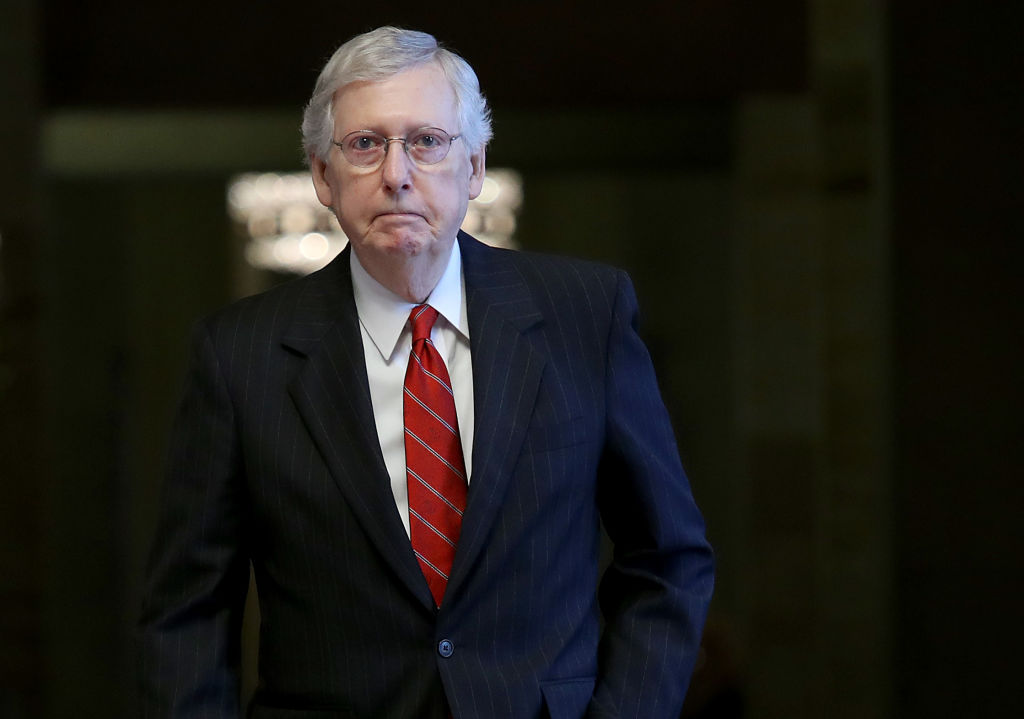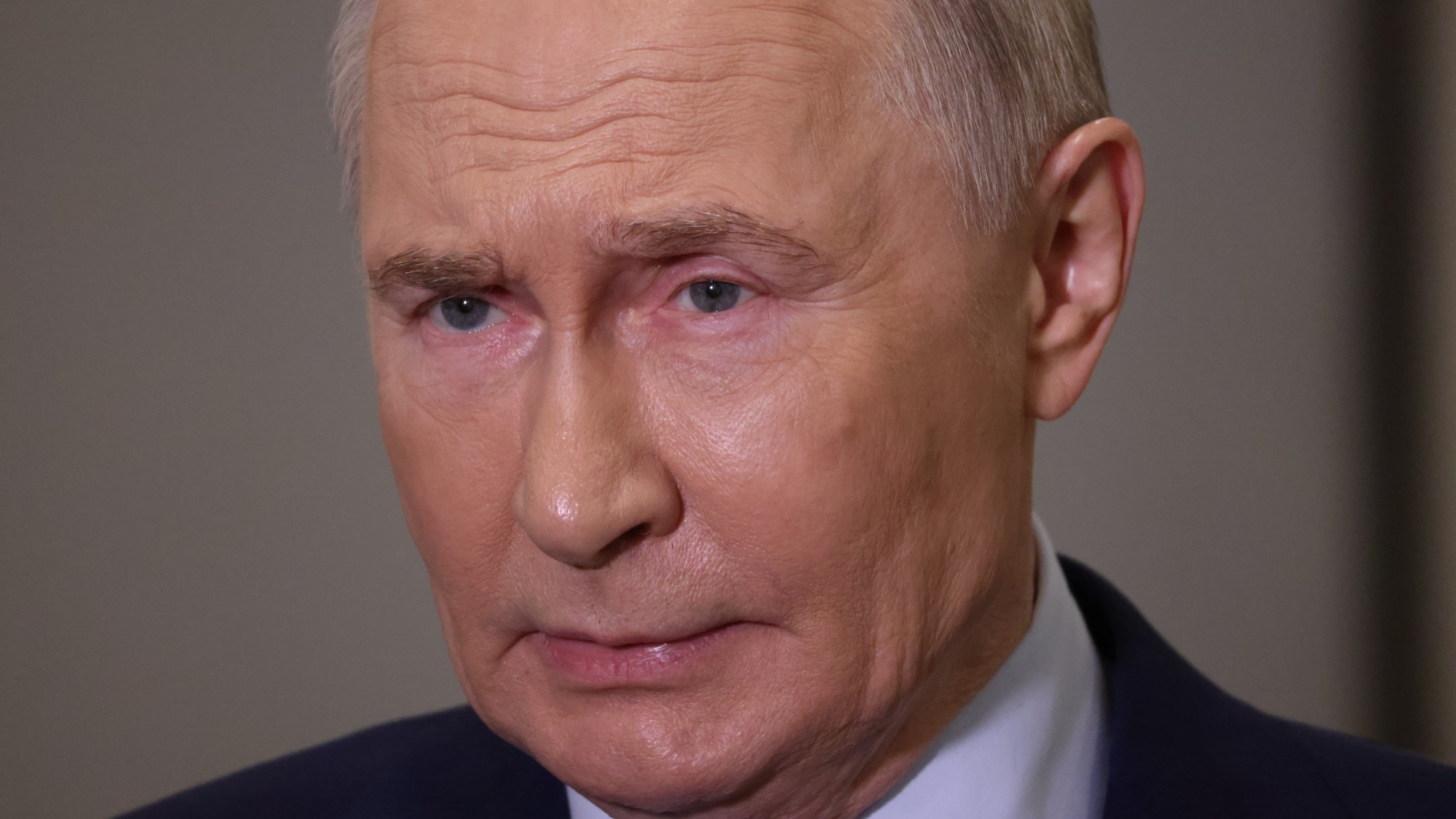Report: Kentucky aluminum plant benefited from McConnell-backed effort to lift Russian sanctions


A free daily email with the biggest news stories of the day – and the best features from TheWeek.com
You are now subscribed
Your newsletter sign-up was successful
Senate Majority Leader Mitch McConnell (R-Ky.) is denying that he knew a project in his home state would benefit from the U.S. ending sanctions against a Russian oligarch.
In January, nearly a dozen Republicans broke away from McConnell and joined Democrats in voting to block the Trump administration from lifting sanctions on companies owned by Oleg Deripaska, an ally of Russian President Vladimir Putin. They didn't reach the 60 votes necessary to advance the resolution, and a few weeks later, the government lifted the sanctions against Deripaska and Rusal, Russia's largest aluminum producer. Three months after that, The Washington Post reports, Rusal announced it was partnering with Braidy Industries on an aluminum-rolling mill in Ashland, Kentucky, with Rusal supplying $200 million in capital for a 40 percent stake in the plant.
The night before the Senate voted on lifting sanctions, Braidy Industries' founder, Craig Bouchard, had dinner in Zurich with Rusal's head of sales. Bouchard told the Post they did not discuss the Senate vote, and Braidy Industries did not tell any government officials that lifting sanctions would be beneficial. Rusal's parent company, EN+, told the Post the Kentucky project had nothing to do with its aggressive lobbying to get sanctions dropped, and McConnell's spokesman, David Popp, said McConnell "was not aware of any potential Russian investor before the vote."
The Week
Escape your echo chamber. Get the facts behind the news, plus analysis from multiple perspectives.

Sign up for The Week's Free Newsletters
From our morning news briefing to a weekly Good News Newsletter, get the best of The Week delivered directly to your inbox.
From our morning news briefing to a weekly Good News Newsletter, get the best of The Week delivered directly to your inbox.
Democratic lawmakers are suspicious of the timing, and have asked the government to review the deal. "It is shocking how blatantly transactional this arrangement looks," Michael McFaul, U.S. ambassador to Russia during the Obama administration, told the Post. Bouchard doesn't see it that way. "You just can't be so picky," he said. "Whoever is going to help us go in and rebuild this place that's been decimated, we just welcome it, with open arms."
A free daily email with the biggest news stories of the day – and the best features from TheWeek.com
Catherine Garcia has worked as a senior writer at The Week since 2014. Her writing and reporting have appeared in Entertainment Weekly, The New York Times, Wirecutter, NBC News and "The Book of Jezebel," among others. She's a graduate of the University of Redlands and the Columbia University Graduate School of Journalism.
-
 Tourangelle-style pork with prunes recipe
Tourangelle-style pork with prunes recipeThe Week Recommends This traditional, rustic dish is a French classic
-
 The Epstein files: glimpses of a deeply disturbing world
The Epstein files: glimpses of a deeply disturbing worldIn the Spotlight Trove of released documents paint a picture of depravity and privilege in which men hold the cards, and women are powerless or peripheral
-
 Jeff Bezos: cutting the legs off The Washington Post
Jeff Bezos: cutting the legs off The Washington PostIn the Spotlight A stalwart of American journalism is a shadow of itself after swingeing cuts by its billionaire owner
-
 TikTok secures deal to remain in US
TikTok secures deal to remain in USSpeed Read ByteDance will form a US version of the popular video-sharing platform
-
 Unemployment rate ticks up amid fall job losses
Unemployment rate ticks up amid fall job lossesSpeed Read Data released by the Commerce Department indicates ‘one of the weakest American labor markets in years’
-
 US mints final penny after 232-year run
US mints final penny after 232-year runSpeed Read Production of the one-cent coin has ended
-
 Will latest Russian sanctions finally break Putin’s resolve?
Will latest Russian sanctions finally break Putin’s resolve?Today's Big Question New restrictions have been described as a ‘punch to the gut of Moscow’s war economy’
-
 Warner Bros. explores sale amid Paramount bids
Warner Bros. explores sale amid Paramount bidsSpeed Read The media giant, home to HBO and DC Studios, has received interest from multiple buying parties
-
 Gold tops $4K per ounce, signaling financial unease
Gold tops $4K per ounce, signaling financial uneaseSpeed Read Investors are worried about President Donald Trump’s trade war
-
 Electronic Arts to go private in record $55B deal
Electronic Arts to go private in record $55B dealspeed read The video game giant is behind ‘The Sims’ and ‘Madden NFL’
-
 New York court tosses Trump's $500M fraud fine
New York court tosses Trump's $500M fraud fineSpeed Read A divided appeals court threw out a hefty penalty against President Trump for fraudulently inflating his wealth
